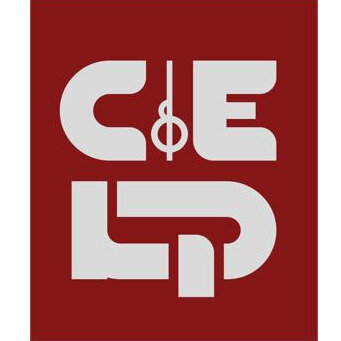Best Technology Transactions Lawyers in Nigeria
Share your needs with us, get contacted by law firms.
Free. Takes 2 min.
Or refine your search by selecting a city:
List of the best lawyers in Nigeria
Legal guides written by Adeola Oyinlade & Co:
- Procedure and Requirements for Work Permit and Visas in Nigeria
- The Step-By-Step Procedure of How to Apply for Microfinance Bank License Online in Nigeria
- How to Ensure the Smooth Recognition and Enforcement of Foreign Judgments in Nigeria
About Technology Transactions Law in Nigeria
Technology transactions law in Nigeria encompasses legal issues relating to the development, licensing, and transfer of technology. This area of law is crucial for businesses and individuals who engage in technological innovations, offering software solutions, or dealing with intellectual property rights. The legal landscape is shaped by both national legislation and international agreements, aiming to protect intellectual property, provide mechanisms for dispute resolution, and facilitate a conducive environment for tech-related investments. Key areas include software licensing, data protection, cybersecurity, telecommunications, and electronic commerce.
Why You May Need a Lawyer
Engaging a lawyer in technology transactions is crucial for several reasons. A lawyer's expertise is invaluable when navigating complex contracts such as software licenses and service agreements, ensuring your intellectual property rights are adequately protected. Furthermore, they can assist in compliance with local data protection regulations, help mitigate risks related to cyber threats, and resolve disputes that may arise in tech collaborations or partnerships. Companies intending to invest or expand in Nigeria's technology sector might also require legal guidance for regulatory approvals and to ensure adherence to local technology policies.
Local Laws Overview
Nigeria's legal framework for technology transactions is shaped by several key legislations and regulations:
- Nigerian Data Protection Regulation (NDPR): Governs the collection and processing of personal data.
- National Information Technology Development Agency (NITDA): Provides regulatory oversight and supports tech innovation.
- Cybercrimes Act: Outlines offenses related to computer systems and cyber activities.
- Intellectual Property Laws: Encompass various statutes covering patents, copyrights, and trademarks.
- Communications Act: Regulates telecommunications and broadcasting in Nigeria.
These laws collectively aim to create a secure and efficient technological environment in Nigeria.
Frequently Asked Questions
What is a technology transaction?
A technology transaction involves the exchange of rights to use technological assets, such as software, patents, or other intellectual property, often through licensing or sales agreements.
Why is intellectual property protection important?
Intellectual property protection is crucial for safeguarding innovations, ensuring creators and companies get recognition and financial benefit from their inventions.
What are software licensing agreements?
Software licensing agreements allow the holder of software rights to permit another party to use the software under defined conditions, usually in return for payment.
How does data protection regulation affect technology transactions in Nigeria?
The NDPR sets standards for handling personal data, requiring entities involved in technology transactions to implement measures ensuring data privacy and security.
What steps are involved in conducting technology transactions?
Key steps include negotiating contract terms, ensuring compliance with regulatory requirements, managing intellectual property rights, and implementing cybersecurity measures.
How can a lawyer assist with cybersecurity issues?
A lawyer can help assess legal risks associated with cybersecurity, draft policies to mitigate these risks, and represent clients in cases of data breaches or cyber attacks.
What role does NITDA play in technology transactions?
NITDA sets the regulatory framework for information technology practices in Nigeria, facilitating policy implementation and promoting technological innovation.
Is a license mandatory for all technology transactions?
Licensing is often mandatory for transactions involving patented technology or proprietary software, depending on the terms of use and rights involved.
Can technology transactions involve cross-border elements?
Yes, technology transactions can be international, involving foreign parties or technology originating from outside Nigeria, subject to additional regulations and agreements.
What disputes commonly arise in technology transactions?
Common disputes include breach of contract, unauthorized use of technology, data breaches, and disagreements over intellectual property ownership.
Additional Resources
For further assistance, consider consulting the following resources and organizations:
- National Information Technology Development Agency (NITDA): Offers guidelines and regulations for technology use.
- Nigerian Bar Association (NBA): Provides directories for finding qualified technology transaction lawyers.
- Corporate Affairs Commission (CAC): Handles business registrations and compliance for tech firms.
- Intellectual Property Office of Nigeria (IPON): Manages and enforces intellectual property rights.
- Federal Ministry of Communications and Digital Economy: Oversees policies related to IT and communications.
Next Steps
If you require legal assistance with technology transactions, consider the following steps:
- Assess Your Needs: Clearly define the nature of your transaction and the specific legal services you require.
- Research Attorneys: Use resources like the Nigerian Bar Association to find experienced lawyers specializing in technology law.
- Consult with a Professional: Arrange consultations to discuss your situation and gain insights into potential legal strategies.
- Prepare Documentation: Gather all relevant documents, contracts, and records to present to your legal advisor.
- Monitor Legal Developments: Stay informed of any changes in Nigerian tech laws that may affect your interests.
By following these steps and seeking professional help, you can navigate the complex landscape of technology transactions in Nigeria with confidence.
Lawzana helps you find the best lawyers and law firms in Nigeria through a curated and pre-screened list of qualified legal professionals. Our platform offers rankings and detailed profiles of attorneys and law firms, allowing you to compare based on practice areas, including Technology Transactions, experience, and client feedback.
Each profile includes a description of the firm's areas of practice, client reviews, team members and partners, year of establishment, spoken languages, office locations, contact information, social media presence, and any published articles or resources. Most firms on our platform speak English and are experienced in both local and international legal matters.
Get a quote from top-rated law firms in Nigeria — quickly, securely, and without unnecessary hassle.
Disclaimer:
The information provided on this page is for general informational purposes only and does not constitute legal advice. While we strive to ensure the accuracy and relevance of the content, legal information may change over time, and interpretations of the law can vary. You should always consult with a qualified legal professional for advice specific to your situation.
We disclaim all liability for actions taken or not taken based on the content of this page. If you believe any information is incorrect or outdated, please contact us, and we will review and update it where appropriate.
Browse technology transactions law firms by city in Nigeria
Refine your search by selecting a city.
















